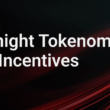Disclaimer: This article should not be considered as expert advice or an endorsement of the project. The article was written based on information provided by the project team during an interview, the proposal itself, and additional research conducted online. While every effort has been made to ensure accuracy, personal biases may have influenced the writing. Therefore, voters are strongly encouraged to conduct their own thorough research and due diligence on the proposals they intend to vote on. This article should be used as a starting point for further investigation and not as the sole basis for making a voting decision.
A Quick Rundown of The Proposal
Project Description:
The P2P-DeFi Protocols project is a suite of composable DeFi protocols on Cardano, offering high security and availability. It comprises four core protocols:
- Cardano-Swaps: A peer-to-peer exchange protocol for trading fungible tokens, acting as the liquidity foundation for other protocols.
- Cardano-Loans: A peer-to-peer lending/borrowing protocol featuring tradable Bond NFTs, on-chain loan term negotiations, and an on-chain credit history.
- Cardano-Options: A peer-to-peer options protocol for writing, buying, and exercising American-style covered options contracts.
- Cardano-Secondary-Market: A peer-to-peer aftermarket protocol for buying and selling NFTs, particularly optimized for Financial NFTs like Bonds and Options.
Link to Ideascale proposal: Link
A high-level overview of p2p-DeFi Protocols for the Cardano Settlement Layer is available at this link.
Proof of Reputation
- The team has already built working MVPs, which are available for the public to test.
- This is the first-ever Catalyst proposal submitted by the individuals building this protocol. So, they have no previous record of participating in Catalyst.
What is the amount requested by the project?
The proposal requests 483,600 ADA, which constitutes approximately 5.32% of the total fund in the specified category (i.e., 9,080,400 ADA).
What problem is this project solving?
The existing DeFi landscape faces significant challenges due to its dependence on permissioned actors, resulting in single-points of failure and limited system resilience. These actors also complicate the system’s governance and obstruct the optimal composition of protocols due to disparate designs and incentive mechanisms.
This project aims to enhance DeFi availability and composability by utilizing endogenous price discovery, NFT-mediated indexing, and a holistic approach to eUTxO-based DeFi that fully considers financial stack requirements within a peer-to-peer architecture, all while maintaining control delegation.
Impact
This project clearly demonstrates and explains the positive impact it will have on the Cardano ecosystem. The P2P-DeFi Protocols project seeks to establish the basic building blocks of P2P finance on Cardano. It is a family of synergistically composable DeFi protocols with high security and availability guarantees.
Feasibility
The feasibility of the project is demonstrated by the already functioning Minimum Viable Products (MVPs). However, as the project depends on the maturation of the Aiken programming language, potential risks to the successful and timely implementation of the proposed solution may arise from any issues related to Aiken’s development.
Value For Money
With a working proof of concept already in place, this project demonstrates excellent value for money. All financial aspects are clearly defined and explained
Now, Let’s Dive into the Details
What problem is this project solving?
This project aims to solve key problems in the Decentralized Finance (DeFi) space that hinder its development and broader adoption:
- Availability and Resilience: Traditional DeFi systems often struggle with availability and resilience due to their reliance on permissioned actors, making them vulnerable to disruptions and potential governance issues.
- Composability: The current DeFi protocols are often not easily composable due to being designed and managed by disparate teams. This lack of interoperability restricts their efficiency and ability to perform complex transactions.
- Censorship and Security: Existing DeFi platforms are subject to censorship and single-point failures because they are dependent on specialized entities like oracles or batchers, increasing their vulnerability to attacks.
- Full Custody and Cost: DeFi users often have to relinquish some control over their assets, leading to trust issues. Moreover, the requirement to incentivize these special actors results in higher transaction fees, making DeFi less accessible and affordable.
Is this a significant problem in Blockchain space?
The existing DeFi space lacks viable alternatives, normalizing issues that pose significant challenges. Users often relinquish asset control and face unnecessary governance tokens, undermining decentralization.
Financial inefficiencies like impermanent loss and high slippage have become standard, leading to considerable capital loss and risk.
Governance manipulation further compromises security and integrity. This project aims to rectify these concerns, offering a more secure, efficient, and user-friendly DeFi model.
What is the solution offered by the project to solve the above mentioned problem?
The P2P DeFi Protocols project introduces a comprehensive suite of solutions to address these challenges.
- Cardano-Swaps: This is a peer-to-peer exchange protocol for swapping fungible tokens. It is designed to provide a robust liquidity base for composition with the other protocols in the suite.
- Cardano-Loans: A peer-to-peer lending/borrowing protocol that features trade-able “Bond” NFTs, on-chain loan term negotiations, and an on-chain credit history. This allows for direct lending and borrowing between parties without the need for an intermediary.
- Cardano-Options: A peer-to-peer options protocol for writing, buying, and exercising American-style covered options contracts. This enables users to hedge their risk or speculate on the price of assets in a decentralized manner.
- Cardano-Secondary-Market: A peer-to-peer aftermarket protocol for buying and selling NFTs. It is especially well-suited for “Financial NFTs” such as bonds and options.
How accessible will be the solution to users
The P2P DeFi Protocols will be fully open sourced. These protocols are designed to function as “common goods”, benefiting the entire community and serving as fundamental building blocks that are freely accessible.
The Minimum Viable Products (MVPs) are already available for testing. This allows anyone interested in the project to get a hands-on feel for the functionality and potential of these new protocols.
However, at this current stage, some technical knowledge may be required to effectively test and understand these MVPs.
Feasibility of this Project
The feasibility of the P2P-DeFi Protocols project is strongly established by the existing Minimum Viable Products (MVPs) for all four core protocols, which are currently available for testing. This, coupled with the team’s demonstrated commitment and ability to self-fund and carry out the project thus far, underscore the project’s feasibility.
The project’s structured roadmap, segmented into detailed milestones focusing on each protocol, further attests to its viability. These milestones encompass comprehensive plans for architectural refinements, optimizations, enhancements, and benchmark testing over 6 to 8 week periods. Additionally, an extra six weeks have been earmarked for the creation of a unified Command-Line Interface (CLI) program.
The main goals of the project include refining the protocols to maximize efficiency, developing a user-friendly unified CLI program that enables transaction composition, and creating comprehensive documentation to foster community engagement and collaboration. The team’s efforts are geared towards improving CPU/memory usage, minimizing transaction fees, enhancing the expressiveness of Beacon Tokens’ queries, and implementing new features without compromising the core properties of P2P-DeFi.
Feasibility validation will occur through rigorous benchmarking of various metrics and community feedback on the CLI’s user-friendliness and the effectiveness of the documentation and support material. Given that the core protocols are already operational, the team is well-positioned to execute these holistic deliverables, potentially even ahead of the initially estimated timeline.
The P2P-DeFi Protocols project is structured into six main milestones spread over an estimated period of 42 weeks:
- Preliminary Refinement (8 weeks): This phase involves finalizing the next iteration of Cardano-Loans, creating an Architectural Decision Record (ADR) for each protocol, and updating the overview document to reflect the newly discovered commonalities.
- Cardano-Swaps (6 weeks): The team will rearchitect the protocol to utilize “Offer-based” Beacon Policies, implement refinements/optimizations, provide transaction benchmarks, and update the documentation. Written and video tutorials will be created to demonstrate usage.
- Cardano-Loans (8 weeks): Similar to the previous stage, the protocol will be rearchitected to improve beacon querying, features/optimizations will be implemented, benchmarks provided, and documentation updated. Tutorials will be created to demonstrate use.
- Cardano-Options (7 weeks): This milestone involves rewriting the protocol using Aiken, implementing features/optimizations, providing benchmarks, updating documentation, and creating tutorials.
- Cardano-Secondary-Market (7 weeks): The tasks are the same as the previous milestone but applied to the Cardano-Secondary-Market protocol.
- Unified CLI Program (6 weeks): The team will develop a unified CLI program to consolidate the four protocols into one terminal-based interface. Tutorials and benchmarks for complex transactions that compose multiple protocols will be provided.
Project Dependencies
The primary dependency for the P2P-DeFi Protocols project is Aiken, a novel programming language designed for developing decentralized applications on Cardano. This project’s core comprises a collection of on-chain validator & minting policies written in Aiken. Although there are already functioning MVPs for all four protocols, the team will not deploy them on the mainnet until Aiken reaches a stable level of development.
This dependency on Aiken is crucial due to its specific utility for the project. It provides the efficiency and capabilities needed to build the complex protocols of this project. Despite its relatively nascent stage, the current state of Aiken is sufficient to continue the development process, but the project’s final readiness is tied to Aiken’s maturity and stability.
Team Composition and Expertise
Project P2P-DeFi Protocols is powered by a US-based team of two members with backgrounds in material sciences and semiconductor design.
The team comprises a Protocol Architect and Lead Developer, known by the pseudonym ‘fallen-icarus,’ and a Technical Writer and Community Advisor, referred to as ‘zhekson‘. Both team members, while not classifiable as traditional seasoned developers, have leveraged their technical background to contribute to this project.
‘Fallen-icarus’ brings over two years of experience with PlutusTx and Aiken to the table, demonstrating an in-depth understanding of the Cardano’s eUTxO model. His innovative contributions to the Beacon Token design pattern highlight his capacity for novel asset-oriented programming techniques.
On the other hand, ‘zhekson‘ actively engages with the Cardano community, explaining high-impact technical concepts in a digestible manner. His contributions to the Cardano Stack Exchange and operation of a stake pool underline his technical expertise and commitment.
The project has been self-funded so far, reflecting their dedication. The team currently operates under pseudonymous identities in public forums. However, they are amenable to identity verification with Catalyst administrators as needed.
Budget Breakdown
For the upcoming nine-month period, the project has set a budget of $145,080, equivalent to 483,600 ADA (assuming an exchange rate of $0.30 per ADA). The budget timeline is based on a 9-month duration, incorporating a two-month gap between the proposal submission and voting results, with an additional seven months following the voting outcome. The team plans to proceed with their project activities during the two-month gap and to communicate their progress accordingly.
The budget allocation is as follows:
- Protocol Architect & Developer: A significant portion of the budget, $101,400, is allocated towards the full-time Protocol Architect and Developer role. This amount is calculated based on a rate of $65 per hour over a span of 1560 hours.
- Technical Writer & Admin: The role of the Technical Writer & Admin is budgeted at $43,680. This figure is derived from a rate of $28 per hour over 1560 hours.
The budget emphasizes a strong focus on protocol development and effective communication.
Impact Assessment:
Target Audience: The intended beneficiaries of this project primarily include the Cardano community and those interested in constructing algorithms to facilitate token trading and credit enablement, utilizing the proposed protocols.
Measurable Outcomes:
According to the team, the success of the P2P-DeFi Protocols project will be evaluated using a series of measurable outcomes:
Quantifiable data includes:
- Fee and Execution Benchmarking: Success will be determined by the efficient performance of protocols, indicated by low transaction fees and CPU/memory usage for both individual protocols and complex compositions.
- Github Activity: The level of engagement on Github, measured in terms of stars and contributions, will serve as an indicator of the project’s adoption and success.
Qualitative measures include:
- Developer Adoption: The project’s success will also be marked by the extent to which external developers start to adopt or adapt the project’s design patterns, leading to a cooperative development environment and enhanced coverage of best practices.
- Community Feedback: Positive feedback and strong support received from the community on social platforms such as Twitter will signify the project’s success.
Is this method viable?
The use of quantifiable data such as transaction fees and CPU/memory usage offers tangible evidence of technical efficiency and performance. Tracking Github activity can also provide a measurable insight into the project’s level of community involvement and engagement.
While qualitative measures, such as community feedback and developer adoption patterns, are potentially more subjective, they provide valuable context. It’s important to consider such data within the broader project performance, specifically alongside quantitative metrics and established goals.
Sustainability:
Is the project currently sustainable?
Yes, the project is currently sustainable, given that it is being self-funded by the team.
Business Model and Monetization Plans for Future Sustainability:
The project is designed to create public goods for the Cardano community, thus not aiming for profit generation by the team. Given its fully open-source nature and absence of any ‘dApp’-specific tokens, the team has no means to profit directly, even if the project is widely adopted. Future sustainability of the project may rely on public funding available through initiatives like Project Catalyst.
Risk and Contingency Planning:
Every project faces potential risks and challenges.
Risk Identification:
1. What are the possible risks or challenges that might impede the project?
The reliance on the Aiken programming language, still in its early development stages, represents a potential risk for this project. This third-party dependency exposes an external vulnerability that could disrupt progress, especially if Aiken’s development stalls, ceases, or becomes compromised.
Additionally, the inherent uncertainties associated with new technologies might lead to unforeseen bugs, inefficiencies, or issues that could impact the functionality of the protocols.
2. What is the team’s contingency plan in case of a potential issue or failure with the Aiken?
In the event of a critical issue with Aiken, the team’s contingency plan involves implementing the protocols in a different programming language. However, this is viewed as a last resort, considering Aiken currently offers the highest efficiency.
Switching to a different language might require sacrificing some throughput or features. While there isn’t a formalized ‘Plan B’, the team remains optimistic about Aiken’s stability and doesn’t anticipate a catastrophic failure.
They also acknowledge the possibility of other languages becoming more efficient in the future.
3. Will the Project be Open-Sourced?
Yes, the project will be fully open-sourced.
4. Are there contingency plans if they are not funded by Catalyst?
According to the team, a lack of funding from Catalyst will not stop them, but it could slow them down considerably. They are committed to building this project as they believe in its vision. This commitment is evidenced by the fact that they have developed multiple MVPs for all the P2P protocols, which is openly accessible, before asking for community funds.
5. Other Risks?
A. One of the potential challenges that the project might face is its current lack of focus on front-end development. The team’s primary emphasis is on developing the core protocols and optimizing their functionality, which are decidedly backend tasks. As such, the project may risk lacking an intuitive, user-friendly interface that is necessary for wider adoption, particularly among non-technical users.
The reliance on a Command-Line Interface (CLI) program, while a powerful tool for developers and technical users, may not be as appealing or accessible to the wider public. Modern users often expect sleek, easy-to-use graphical interfaces, and the lack of such could be seen as a barrier to entry.
While this decision aligns with the team’s priority to create a strong and efficient backend first, it might be necessary to shift focus or expand the team in the future to include dedicated front-end developers. This will ensure that the powerful functionalities being created can be accessed and utilized by the widest possible audience.
B. Coming from specialized fields like material sciences and semiconductor design, this is their inaugural software development project. Their lack of extensive experience in this specific area might bring about unforeseen difficulties and roadblocks that seasoned developers might otherwise anticipate and avoid.
However, their ability to develop working Minimum Viable Products (MVPs) for all protocols demonstrates their adaptability, which reduces this risk.
Conclusion
In conclusion, this proposal sets forth the creation of fundamental peer-to-peer DeFi protocols for the Cardano ecosystem. The team behind this project, despite being relatively new to software development, has already demonstrated a strong commitment and remarkable capability by developing functional MVPs for all four core protocols. Their backgrounds in highly specialized technical fields have effectively translated into the creation of these innovative protocols.
Like all ambitious projects, there are risks involved. The project’s reliance on the Aiken programming language, a third-party development, presents an external vulnerability. Additionally, given the team’s focus on protocol development, potential shortcomings in front-end user interface design could present a challenge.
However, these risks are mitigated by the team’s dedication and contingency plans. The team has stated that they are prepared to re-implement the protocols in another language should there be significant issues with Aiken.
Moreover, the project’s open-source nature invites community involvement and potential collaboration to bolster areas where the team may lack expertise, such as front-end design.
In summation, the P2P-DeFi Protocols initiative is characterized by its adaptability and dedication to continual enhancement. With these guiding principles, it stands to make a considerable impact on the DeFi applications within the Cardano network and beyond.










